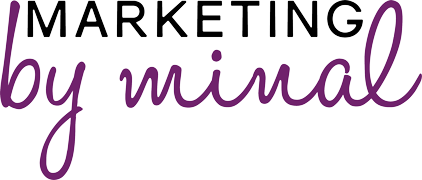Getting started with podcasting for your small business
This is a guest post from Kristian Downer of Dow Social Digital Consultancy.
Podcasting is a huge content platform that for many flies under the radar as blogging and increasingly video draw mainstream attention.
The unique way that users consume podcasts and the relationship it allows broadcasters to build with their audience make it a platform that business owners may be able to leverage.
In the UK alone 4.7m adults are estimated to have listened to a podcast with the majority listening via their smartphone with the morning commute a favoured time of consumption.
This audience makes creating a podcast a potential opportunity for business owners and entrepreneurs to build an audience for their expertise. This audience if engaged enough can then be monetised as a standalone venture or used to support a core business.
What is a podcast?
The simplest way to describe a podcast is that is like a radio show where the host is in total control, there is no fixed format and any topic can be covered.
This content can be distributed through multiple channels and can give you access to audiences outside your usual sphere of influence, particularly if your podcast is able to chart on one of the main distribution channels such as iTunes, Stitcher or SoundCloud.
People may listen to your podcast on their commute, in the shower or whilst working, giving you access at times when other content distractions could be limited.
Many podcasts are focused on entertainment but the top business podcasts can get millions of downloads every week and broadcasters range from traditional powerhouses such as the Financial Times to independent specialists in areas such as property investing or being an entrepreneur or a “one girl band”
Podcasts can be solo projects where someone talks about a topic, or they can be a number of presenters with or without guests, it really is up to you the broadcaster to decide.
The power of podcasting for small business
Podcasting is powerful as it allows you to create content that quickly engages and builds rapport with a like-minded audience. A podcast allows you to speak directly to your target audience on a regular basis.
This shortens the time it takes for a user to know, like and trust your business and can quickly build an army of engaged advocates.
Every listener hears your voice, your message and your expertise, which can be leveraged directly via adverts or affiliate deals or passively by building influence amongst your target audience that will have an indirect impact on your business success.
The key is building an audience that keeps coming back and downloading/engaging with your content. Whether the intent is to generate a direct income, influence or both the power of reaching your audience is undeniable.
A great example of this is the Entrepreneur on Fire Podcast hosted by John Lee Dumas, JLD publishes a daily podcast where he interviews entrepreneurs from across the world.
Unlike many business podcasts which are extensions of a core business, the podcast is the core of JLD’s business. Since launching in 2012 he has generated more than 30 million downloads reaching people in more than 145 countries.
A unique podcast style and the consistency of his message mean that his audience feels like they are talking to him directly. Despite never having met the audience feels like they know JLD and maybe even that he is a friend.
By sharing the highs and lows of his and his guest’s entrepreneurial journey his audience is invested in him and that has powerful results. He uses this audience to monetise his podcast with a mix of advertising, affiliate deals and his own range of products.
He even runs a free podcasting course online.
How to start a podcast
The technical barrier for starting your own podcast is quite low, in theory, all you need is a microphone, an internet connection and something to say to get started.
Like any marketing project, it is important to understand what success looks like and what will be needed to achieve that. Is building an audience and a reputation within your target audience sufficient or will the podcast need to generate revenue?
Once you have decided on a topic and your target audience (the more defined the better), you will need to work out the format and realistically how often you can commit to publishing new podcasts and on what schedule.
Consistency is the key to ensuring that your audience knows when your content will be available and what to expect.
From a technical perspective, there are decisions to make such as what microphone to use (I recommend using a professional one rather than the one built into your PC)
Podcast start-up decisions
- Target audience
- Topic for podcast
- Format
- What technology and software you will use
- How often you will publish
Once your podcast is ready it is now about promoting it like you would any other content platform, this can be via social media, SEO and by getting good rankings to get your podcast found in the distribution platform charts such as iTunes, Stitcher and Soundcloud.
Is a podcast right for your business?
The success of a podcast depends on how well you can build rapport with a defined audience and your commitment to making it work. Once created this content is evergreen and can be shared repeatedly so the value as you build is exponential.
If you understand your audience, can add value to a topic and are able to commit to making your podcast a success then a podcast can be a powerful platform.
Podcasting can be a powerful tool for small businesses. Just make sure you understand your objectives before you get started.


Wow, what a great article Kristian! Thanks for the mention, it’s an honor 🙂